Aug 22, 2014
Distinguished Career as JAGC Officer Began with ROTC
By Duncan O’Dwyer ’60 One of the great experiences I had while attending Lafayette was participating in ROTC. My brother and uncle were officers in…
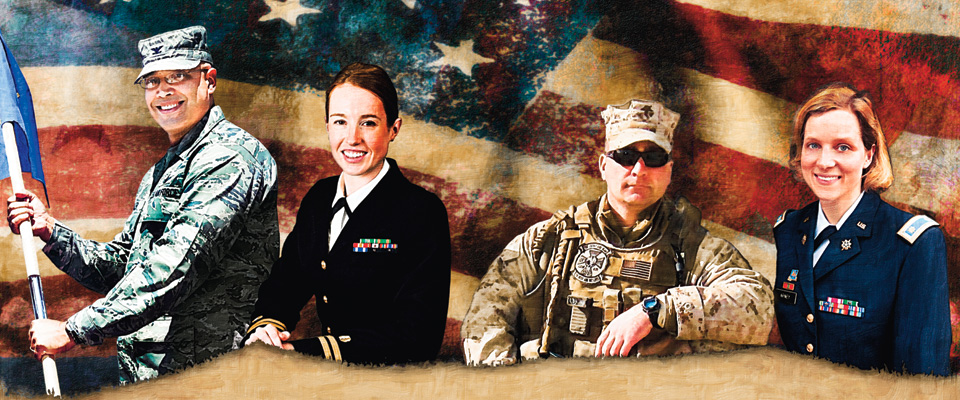
Col. David Miller ’93 (L-R), Lt. Lauren Hugel ’06, Capt. Barret Diefenderfer ’02, Maj. Kristen Fetherston-Arney ’98
by Robert S. Benchley | illustration by Dale Mack
Lafayette’s proud traditions have always included military education, ranging from the ROTC program to courses exploring famous historic confl icts, and many graduates have gone on to careers in military service. Officer training programs and the College select for similar traits, a mix of analytical ability and leadership potential.
Alumni in military careers take pride in their service. They also stress that service is a two-way street—success is not only about what you get from a military career, but also what you bring to it. Their contribution often has roots planted at Lafayette. Here are some of their stories.
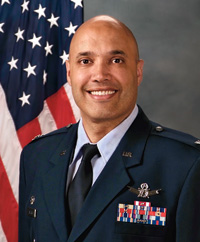 Colonel David N. Miller Jr. ’93, U.S. Air Force
Colonel David N. Miller Jr. ’93, U.S. Air Force
Modern Air Force leaders need “ice in their veins” to be effective, wrote Col. David N. Miller Jr. ’93 in a commentary when he took command of the 21st Operations Group in the U.S. Air Force’s 21st Space Wing at Peterson Air Force Base in Colorado in 2013. He was not referring to remaining cool under fire, but to an acronym—ICE, for integrity, competence, and empathy. Those three leadership traits, he wrote, rose in importance above any others he had witnessed in his military career.
“It is our job as leaders to create and sustain an environment for our people to succeed professionally and personally,” he explains. “How we act is just as important as what we do.”
Miller commands an Air Force group that is the nation’s eye on the sky, responsible for ground-based missile warning and space surveillance. The challenge he has found in this and previous leadership positions is to motivate a group of people to work together to solve a problem.
“I’ve never been motivated by money, and I don’t know anyone in the military who is,” Miller says. “What I’m motivated by is a sense of achievement. I have learned that the most valuable people in any situation, not just in the military, are those who can build, lead, and teach teams of other people. Almost anything can be accomplished by a motivated group of people, working together to serve something greater than themselves.”
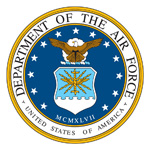 An example he cites is the tsunami that struck Indonesia and Thailand in 2004. At the time, Miller was stationed at Hickam Air Force Base in Hawaii. As liaison officer, he had visited almost every country in the Asia Pacific region, so he was asked to be part of the team planning how to allocate resources to provide
An example he cites is the tsunami that struck Indonesia and Thailand in 2004. At the time, Miller was stationed at Hickam Air Force Base in Hawaii. As liaison officer, he had visited almost every country in the Asia Pacific region, so he was asked to be part of the team planning how to allocate resources to provide
relief. “The devastation was terrible, but it was never clearer in my experience how a dedicated group could come together to help others. In this case, it was a mix of military, civilian, and relief organizations.”
Although his father was in the Air National Guard, Miller didn’t enter Lafayette planning on a career in the military. An anthropology and sociology graduate, he didn’t join ROTC until after sophomore year. What inspired him was a retired Army Green Beret colonel who taught a course on the Vietnam War.
“Military service is a bit of an abstract concept when you’re in Easton, Pennsylvania,” says Miller, “but he told it the way it really was during his time in Vietnam. What I appreciated most was his attitude. He always had a positive outlook.”
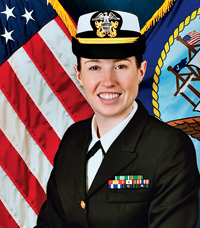 Lieutenant Lauren Hugel ’06, U.S. Navy
Lieutenant Lauren Hugel ’06, U.S. Navy
At 6 feet, Lt. Lauren Hugel ’06 was a formidable figure at the net on Lafayette’s volleyball team. Today, in a U.S. Navy uniform, she has a similar presence in the courtroom.
Back in the U.S. after a seven-month tour in Afghanistan, Hugel is staff judge advocate for the Naval Air Station at Fort Worth Joint Reserve Base in Texas. She serves as the lawyer for the commanding officer of the installation and provides legal support to the tenant commands on base.
“My work ranges from analyzing ethical issues, such as whether the commanding officer can attend certain events in his official capacity or whether service members can accept certain gift offers, like free tickets to a baseball game, to how a sailor should be disciplined for drunk driving, or responding to requests for information under the Privacy Act or the Freedom of Information Act,” she says.
Hugel followed her grandfather, Charles E. Hugel ’51, former chair of the Board of Trustees, and uncle, Christian C. Hugel ’83 to Lafayette. A government and law graduate, she says her professors sparked her interest in a legal career. Considering military career options, when she joined the JAG Corps while in law school, her two interests came together.
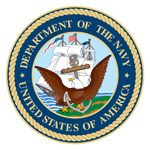 Hugel’s first duty station was Norfolk, Va. Within two months of arriving in early 2010, she was at sea on the USS Enterprise. “There are two JAGs on every aircraft carrier,” she says. “We mostly drew up wills and powers of attorney for sailors getting ready to deploy. In my free time, I liked to go up to the deck and watch the F-19s take off.”
Hugel’s first duty station was Norfolk, Va. Within two months of arriving in early 2010, she was at sea on the USS Enterprise. “There are two JAGs on every aircraft carrier,” she says. “We mostly drew up wills and powers of attorney for sailors getting ready to deploy. In my free time, I liked to go up to the deck and watch the F-19s take off.”
An assignment in Afghanistan two and a half years later brought her closer to the action. “I worked in detainee operations,” she says. “We have review boards that make sure the Afghan detainees are getting their due process, that we have good reason to detain them. I felt pretty safe, except for the occasional rocket attack.”
For Hugel, military service has been about the people with whom she has served. “Some of them have been outstanding leaders and mentors, and some are now among my closest friends. We all chose to serve for different reasons, but we share the same core values and have made similar sacrifices that make us close.
“Military service requires commitment and discipline,” says Hugel. “The existence or lack of those two traits will cause people to succeed or fail at most things in life, and the military is no different.”
Captain Barret Diefenderfer ’02, U.S. Marine Corps
Majoring in government and law, says Capt. Barret Diefenderfer ’02, was only part of the excellent preparation he received at Lafayette for a career as a U.S. Marine Corps lawyer.
He adds that participating in two sports, football and wrestling, which often meant two practices a day in addition to attending classes, taught him teamwork and leadership, but also time management. He also served as president of Theta Delta Chi fraternity.
“Those lessons came in huge when I found myself working as a defense counsel at Camp Lejeune with an average caseload of 25 clients at a time,” he says. “In all, I represented just over 100 marines and sailors in criminal and administrative proceedings. My cases ranged from minor infractions, such as possessing unauthorized substances and testing positive for drugs, to midlevel crimes, such as theft and assault, to the more serious, such as rape, child abuse, and murder.”
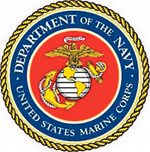 Later, Diefenderfer was sent to Afghanistan to work in the legal side of detainee operations. He often was transported by helicopter to the front lines when a detainee was being extracted and taken to a detention facility.
Later, Diefenderfer was sent to Afghanistan to work in the legal side of detainee operations. He often was transported by helicopter to the front lines when a detainee was being extracted and taken to a detention facility.
“One of our responsibilities was to inspect and tour Afghan prisons to ensure that the detainees we handed over to them were not being tortured and had humane living conditions,” he says.
Diefenderfer is currently deployed to Australia, serving as staff judge advocate in the Marine Rotational Force conducting bilateral training exercises with the Australian military. He advises the commanding general on legal issues, including ethics, military justice, and fiscal and operational law.
Of all his experiences in the Marine Corps, Diefenderfer is proudest of his work as defense counsel, which, he says, occasionally came under fire because of misunderstandings about the Constitutional guarantees so many marines have died to protect.
“What people fail to realize is that the integrity of the process is far more important than the outcome of the trial,” he says. “Marines fight for those who can’t fight for themselves. I have had the honor of fighting for the marines who fought for others.”
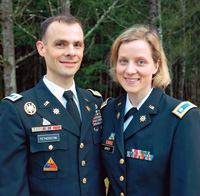 Major Kristin Fetherston-Arney ’98, U.S. Army
Major Kristin Fetherston-Arney ’98, U.S. Army
When your father is a U.S. Army officer who teaches at West Point, your future may be predestined, but Maj. Kristin Fetherston-Arney ’98 never minded a bit.
Lafayette’s ROTC program proved to be one of the College’s big draws—but far from the only one.
“Lafayette offered the full package… a small school with a beautiful campus, lots of interaction between faculty and students, and ROTC.”
It would be difficult to imagine a more triumphant graduation than Fetherston-Arney’s four years later. Her father, retired Brig. General Chris Arney, then a colonel, commissioned her as a second lieutenant that morning. She met the commencement speaker, President George H.W. Bush, and as Pepper Prize recipient delivered an address to the class. A mathematics graduate, she soon began active duty as a military intelligence analyst.
“The well-roundedness you get from a liberal arts background has paid dividends throughout my career,” she says. “Lafayette taught me how to write and how to communicate, which made for a more seamless transition into the Army. Many of my fellow mathematicians and scientists struggled to relate.”
Lafayette also prepared her for the type of analytical thinking her job requires.
“Most of my intelligence work involves taking information from different sources and trying to determine patterns, make connections, and predict what the enemy will do and where they will operate next,” she says. “You have to determine which information is important and how the seemingly disjointed pieces fit together.”
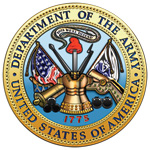 Fetherston-Arney’s assignments have taken her throughout the Pacific, Europe, Turkey, Iraq, and Afghanistan, where in 2012 she was lead planner in material recovery operations during the U.S. troop drawdown. She earned a master’s at North Carolina State and later taught mathematics for three years at West Point. She married another Army intelligence officer, Lt. Colonel Andrew Fetherston.
Fetherston-Arney’s assignments have taken her throughout the Pacific, Europe, Turkey, Iraq, and Afghanistan, where in 2012 she was lead planner in material recovery operations during the U.S. troop drawdown. She earned a master’s at North Carolina State and later taught mathematics for three years at West Point. She married another Army intelligence officer, Lt. Colonel Andrew Fetherston.
Most recently, the Army sent her to University of Washington to earn a doctorate in mathematics. Upon graduation, she will return to teaching at West Point. Resilience is the distinguishing factor in a successful military career, says Fetherston-Arney. “The Army can train you and provide you with just about everything else that you need, but resilience is hard to teach and only comes through experience.”
Fetherston-Arney sees what her career has built upon the foundation of patriotism that inspired it. “Love of country is paramount, but it has been more than that for me,” she says. “It has provided me with opportunities I never could have imagined—education, travel, stimulating challenges, being part of a team, and having the opportunity to serve as a leader in a profession I care about with people I care about.”
READ MORE STORIES about alumni in the military:
Drew Bisset ’67 Leads Program to Prepare Future SEALs
Daniel Arnold ’01 Is Intelligence Analyst for U.S. Army
William Cason ’99 Begins New Career as Airline Pilot
Duncan O’Dwyer ’66 Has Distinguished Career as JAGC Officer
By Duncan O’Dwyer ’60 One of the great experiences I had while attending Lafayette was participating in ROTC. My brother and uncle were officers in…
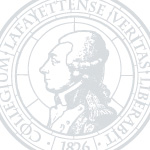
By Robert Benchley “I wasn’t sure what I was going to do after graduating from Lafayette,” says Drew Bisset ’67. “My father asked if I had considered…
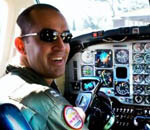
By Robert Benchley The next time you step onto an American Airlines flight, William Cason ’99 may be in the cockpit as first officer. Cason joined American…